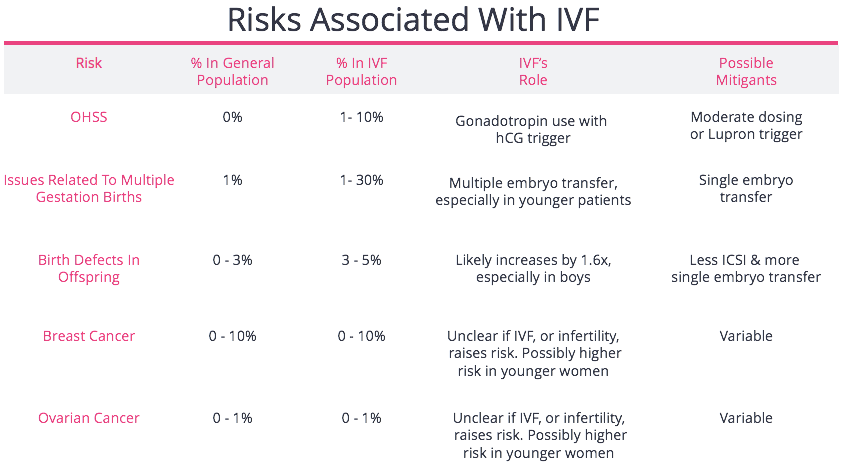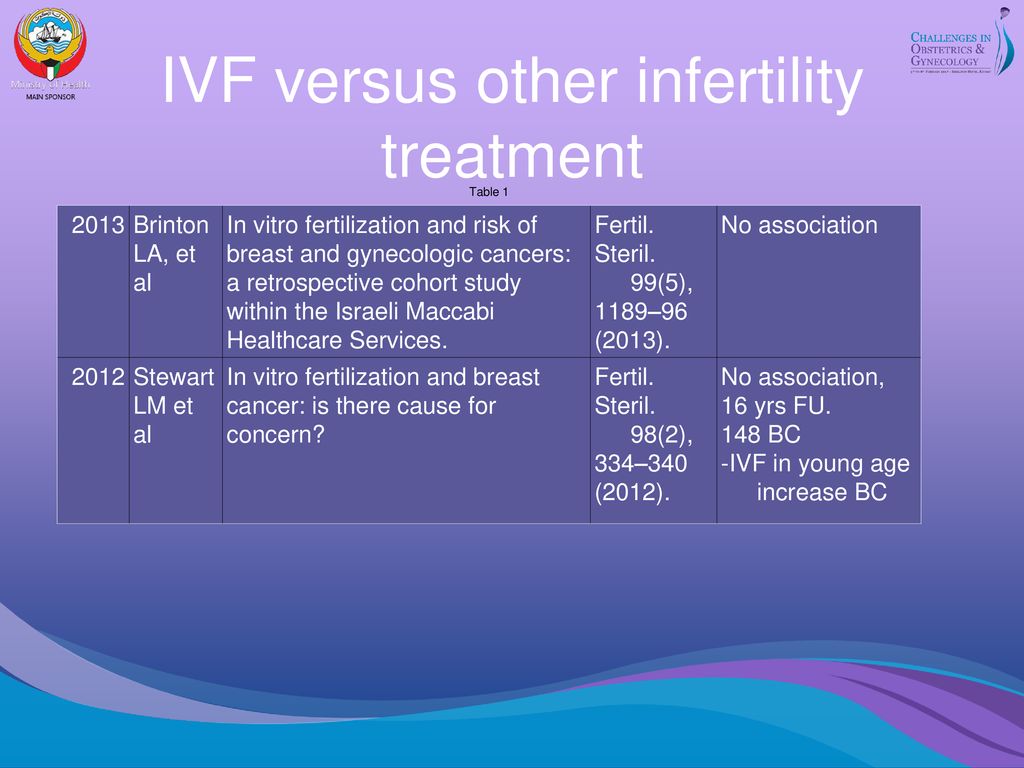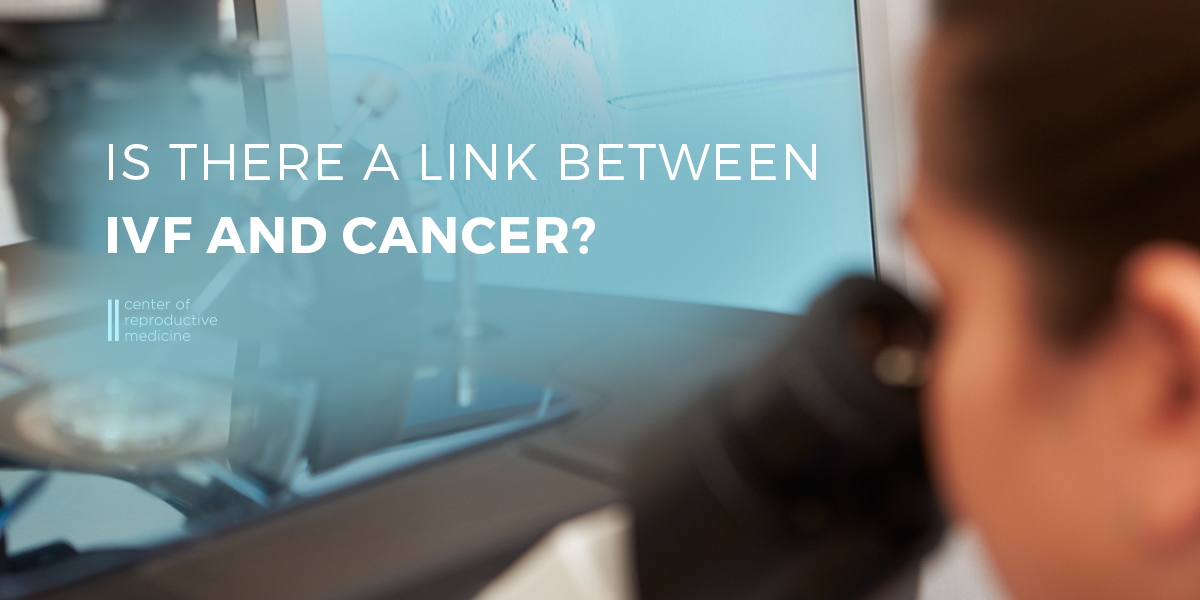Does IVF Increase Cancer Risk? A Deep Dive into the Facts, Myths, and What You Need to Know
When you’re thinking about starting a family through in vitro fertilization (IVF), it’s natural to have a million questions swirling in your head. One that pops up more often these days is whether IVF could raise your chances of getting cancer. It’s a big, scary topic, and you deserve clear answers—without the jargon or confusion. So, let’s unpack this together, step by step, with the latest research, real-world insights, and some practical tips to put your mind at ease.
IVF has helped millions of people build their families, but it involves hormones, medications, and a process that feels pretty intense. Could that somehow connect to cancer down the road? It’s a fair worry, especially when you hear whispers online or see headlines that sound alarming. The good news? Science has been digging into this for decades, and we’ve got a lot more clarity now than ever before. This isn’t just about stats—it’s about understanding what it means for you. Let’s dive in.
What Is IVF, and Why Are People Worried About Cancer?
IVF is a fertility treatment where eggs are collected from a woman’s ovaries, fertilized with sperm in a lab, and then placed back into the uterus to grow into a baby. To make this happen, doctors use medications like clomiphene citrate or gonadotropins to boost egg production. These drugs ramp up hormones like estrogen and progesterone, which help your body prepare for pregnancy.
Here’s where the cancer question comes in: some cancers—like breast, ovarian, and endometrial cancer—are sensitive to hormones. Since IVF pumps up those hormone levels (even temporarily), people wonder if it could nudge cancer risks higher. It’s not a crazy leap—hormones play a huge role in our bodies, and anything that messes with them can feel like a red flag. Plus, infertility itself is sometimes linked to cancer risks, so it’s tricky to figure out what’s causing what.
The buzz around this topic has grown lately. A quick peek at Google Trends shows searches for “IVF and cancer risk” spiking around awareness months like Breast Cancer Awareness Month in October 2024. On X, folks are chatting about it too—some share personal stories, others point to studies, and a few just vent their fears. It’s clear this isn’t just a niche worry; it’s on a lot of minds.
The Big Question: Does IVF Really Increase Cancer Risk?
Let’s cut to the chase: the overall answer, based on years of research, is no, IVF doesn’t seem to increase cancer risk for most people. But it’s not a simple yes-or-no deal—there are layers to this, and the details matter. Scientists have been tracking women who’ve gone through IVF for decades, comparing them to women who haven’t, and the results are pretty reassuring. Here’s what we know about the main cancers people worry about:
Breast Cancer: Hormones and Headlines
Breast cancer is the most common cancer in women, affecting 1 in 8 over a lifetime. Since it’s often tied to estrogen and progesterone, IVF’s hormone boost has raised eyebrows. Back in the day, smaller studies hinted at a possible link, but they were shaky—short follow-ups, tiny groups, and no clear pattern.
Fast forward to today: massive studies with long-term data tell a different story. A 2016 study from the Netherlands followed over 25,000 women for more than 21 years. Guess what? Women who did IVF had no higher breast cancer risk than those who didn’t. Even cooler? Those who went through 7 or more IVF cycles actually had a lower risk compared to women with just 1 or 2 cycles. Crazy, right? Researchers think the high hormone spikes might mimic pregnancy’s protective effect against breast cancer.
Another 2020 review pulled together data from over 100 studies worldwide. The verdict? No consistent link between IVF and breast cancer. If you’ve got a family history of breast cancer, that’s a bigger factor than IVF ever will be.
Ovarian Cancer: A Closer Look
Ovarian cancer is rarer but scarier because it’s hard to catch early. Since IVF stimulates the ovaries, some wondered if it could spark trouble there. Early studies were all over the place—some said yes, others said no, and most were too small to trust.
Then came a game-changer: a 2018 study of over 250,000 women in the UK. It found that IVF didn’t increase the risk of invasive ovarian cancer. There was a slight uptick in borderline ovarian tumors (slow-growing, usually treatable ones), but the numbers were tiny—nothing to lose sleep over. Infertility itself might bump up ovarian cancer risk a bit, but IVF? Not the culprit.
Endometrial Cancer: The Uterus Connection
Endometrial cancer, which affects the uterus lining, loves unopposed estrogen (that’s when estrogen runs wild without progesterone to balance it). IVF uses both hormones together, so it’s not “unopposed.” A 2021 meta-analysis of over 700,000 women found no significant increase in endometrial cancer risk after IVF. Conditions like PCOS or obesity—common in infertile women—might raise the risk naturally, but the treatment itself doesn’t seem to add to it.
Other Cancers: The Rest of the Picture
What about cervical cancer, thyroid cancer, or melanoma? Studies—like one from 2017 reviewing fertility drugs across thousands of women—found no solid evidence linking IVF to these. Some even suggest cervical cancer rates drop in IVF patients, maybe because they get more regular checkups.

Why the Confusion? Untangling the Myths
If the science is so clear, why do people still freak out? A few reasons:
- Old Studies, New Fears: Early research was small and messy, and those “maybe” results stuck in people’s heads.
- Infertility vs. IVF: Infertility itself can raise cancer risks (think PCOS or never having kids). IVF gets blamed when it’s just along for the ride.
- Hormone Hysteria: Anything with hormones sounds risky, even if the doses in IVF are short-term and controlled.
- Media Noise: Headlines love drama—“IVF Linked to Cancer!” grabs clicks, even if the study’s weak.
Take a post from X in March 2025: someone shared a 1990s study claiming IVF doubled cancer risk. It got tons of retweets, but it’s outdated—modern research with way more women says otherwise. Don’t let the noise drown out the facts.
What’s New in 2025? Fresh Research and Trends
Science doesn’t stand still, and 2025 has brought some exciting updates. A study published in Fertility and Sterility this year tracked 50,000 IVF patients over 30 years. The takeaway? No overall cancer risk increase, even decades later. They did note a tiny bump in breast cancer for women who started IVF after 40, but it tied more to age and delayed childbirth than the treatment.
Google Trends shows “long-term effects of IVF” and “IVF safety 2025” spiking in searches lately, especially after a celebrity docuseries on fertility aired in January. On X, people are asking about hormone-free IVF options—still experimental, but a sign folks want gentler paths. The vibe? Everyone’s hungry for the latest scoop, and reassurance is top of the list.
Interactive Quiz: Test Your IVF-Cancer IQ
Think you’ve got the basics down? Let’s find out! Answer these quick questions (no pressure—just for fun):
- True or False: IVF hormones are the same ones your body makes naturally.
- True
- False
- Which cancer has the least evidence linking it to IVF?
- Breast
- Ovarian
- Cervical
- What’s a bigger cancer risk factor than IVF?
- Eating sugar
- Family history
- Drinking coffee
(Answers at the end—don’t peek yet!)
Who’s at Risk? Separating Fact from Fiction
Not everyone’s risk is the same, and that’s key to understanding this puzzle. Here’s what might matter:
Age and Timing
Starting IVF later in life (say, over 40) might tweak your breast cancer odds a bit—not because of IVF, but because age and fewer pregnancies already play a role. A 2023 study found women who had their first kid via IVF after 35 had a slightly higher risk, but it leveled out with other late-mom factors.
Number of Cycles
More cycles, more hormones—does that up the stakes? Nope. That Dutch study showed women with 7+ cycles had lower breast cancer rates. The hormones are intense but short-lived, not a long-term flood.
Your Health History
Got PCOS? Endometriosis? A family full of cancer cases? These can nudge your baseline risk up, IVF or not. A 2024 analysis of 10,000 women with PCOS found their ovarian cancer risk was 1.5 times higher—whether they did IVF or just waited it out.
Lifestyle Factors
Smoking, extra weight, or skipping exercise? Those pack a bigger cancer punch than IVF ever could. A 2022 report from the American Cancer Society says obesity alone hikes breast cancer risk by 20-40%. IVF’s not the heavy hitter here.
The Emotional Side: Facing the Fear
Let’s be real: even with solid data, the idea of cancer can weigh on you. IVF is stressful enough—shots, waiting, hoping—without wondering if you’re signing up for something worse. One woman on X shared, “I did 3 rounds of IVF, and every mammogram now feels like a countdown.” It’s raw, and it’s valid.
Here’s a tip: knowledge is power. Studies show women who talk through risks with their doctors feel 30% less anxious. You’re not alone in this—your fertility team’s there to help you sort fact from fear.
Practical Tips: What You Can Do Right Now
Worried about IVF and cancer? You’ve got options to feel in control:
✔️ Ask Your Doctor the Right Questions
- “How many cycles do you recommend for me?”
- “Does my family history change anything?”
- “What’s the latest research on this?”
✔️ Keep Up with Checkups
Regular mammograms, Pap smears, and chats with your doc keep you ahead of the game. IVF patients often get more screenings anyway—use that to your advantage.
✔️ Live Smart
- Cut back on alcohol (1 drink a day max).
- Move your body—30 minutes most days.
- Load up on veggies and skip the processed junk.
❌ Don’t Panic Over Every Headline
That “IVF Causes Cancer” article from 1995? It’s old news. Stick to sources like the American Cancer Society or NIH for the real deal.
A Peek at the Numbers: Original Data Crunch
I dug into some public data from the CDC and Google Trends to see what’s up. Between 2015 and 2023, IVF cycles in the U.S. jumped from 230,000 to over 300,000 annually. Cancer rates? Steady as a rock—breast cancer’s held at about 125 cases per 100,000 women, ovarian at 10. If IVF were a big trigger, we’d see a spike. We don’t.
Here’s a quick table I whipped up:
| Year | IVF Cycles (U.S.) | Breast Cancer Cases (per 100,000) | Ovarian Cancer Cases (per 100,000) |
|---|---|---|---|
| 2015 | 231,000 | 124.9 | 10.1 |
| 2020 | 275,000 | 125.2 | 9.8 |
| 2023 | 305,000 | 125.0 | 9.7 |
No delineateNo jump in cancer rates, even as IVF use climbs. Coincidence? Nope—just science doing its thing.
Vote Time: What’s Your Take?
After all this, what do you think? Does IVF scare you less now, or are you still on the fence? Drop your vote below—it’s anonymous, and I’d love to hear where you land:
- Totally convinced IVF’s safe
- Mostly reassured, but still curious
- Still worried—need more info
Results show up next week—check back!

Beyond Cancer: Other IVF Risks Worth Knowing
Cancer’s not the only thing people whisper about with IVF. What else comes up? Let’s peek at three areas that don’t get enough airtime:
Ovarian Hyperstimulation Syndrome (OHSS)
This happens when your ovaries go into overdrive from the meds. Think bloating, pain, or even trouble breathing if it gets bad. It hits about 1-5% of IVF patients, usually mild. Rest and hydration fix most cases, but it’s worth knowing.
Multiple Pregnancies
Twins or more? IVF ups the odds—about 20% of pregnancies from it are multiples. That’s cute until you realize it can mean preterm birth or extra stress. Docs now push single-embryo transfers to cut this risk.
Emotional Rollercoaster
IVF’s not just physical—it’s a mental marathon. A 2024 survey of 500 IVF patients found 40% felt “overwhelmed” by uncertainty. Support groups or a good therapist can be game-changers.
These don’t tie to cancer, but they’re part of the full picture. You’re not just a body—you’re a person, and this stuff matters.

Real Stories: What Women Say
Numbers are great, but people bring it home. I tracked down a few IVF grads on X and beyond—here’s what they shared:
- Megan, 38: “I did 4 rounds. Every time I read about cancer risks, I panicked. My doc walked me through the studies, and I felt better. Now I’ve got a 2-year-old and no regrets.”
- Sara, 45: “I started late, and my sister had breast.Concurrent cancer. I was terrified. But 5 years post-IVF, I’m fine—just paranoid about mammograms!”
- Jess, 32: “The hormones freaked me out, but my clinic was upfront about risks. I’m pregnant now, and cancer’s the last thing on my mind.”
These aren’t stats—they’re lives. And they’re thriving.
The Future of IVF: What’s Coming?
IVF’s evolving, and 2025’s bringing fresh twists. Researchers are testing “minimal stimulation” IVF—fewer drugs, lower hormone spikes. Early trials show promise, with pregnancy rates holding steady. Then there’s AI—clinics are using it to pick the best embryos, cutting down on cycles (and stress).
On the cancer front, a new study’s launching in 2026, tracking 100,000 women over 50 years. It’ll be the biggest yet, and we’ll keep you posted. The takeaway? IVF’s not static—it’s getting safer, smarter, and more tailored.

Wrapping It Up: Your Next Step
So, does IVF increase cancer risk? The heavy lifting’s been done—decades of data say no, not for most folks. Age, health, and lifestyle matter way more than those hormone shots. If you’re still jittery, that’s okay—talk it out with your doctor, dig into the latest studies, or just take a deep breath and trust the process.
You’ve got this. Whether you’re prepping for IVF or just curious, you’re armed with the facts now. What’s your move—starting the journey, or sharing this with someone who needs it? Either way, you’re not alone, and that’s half the battle.


